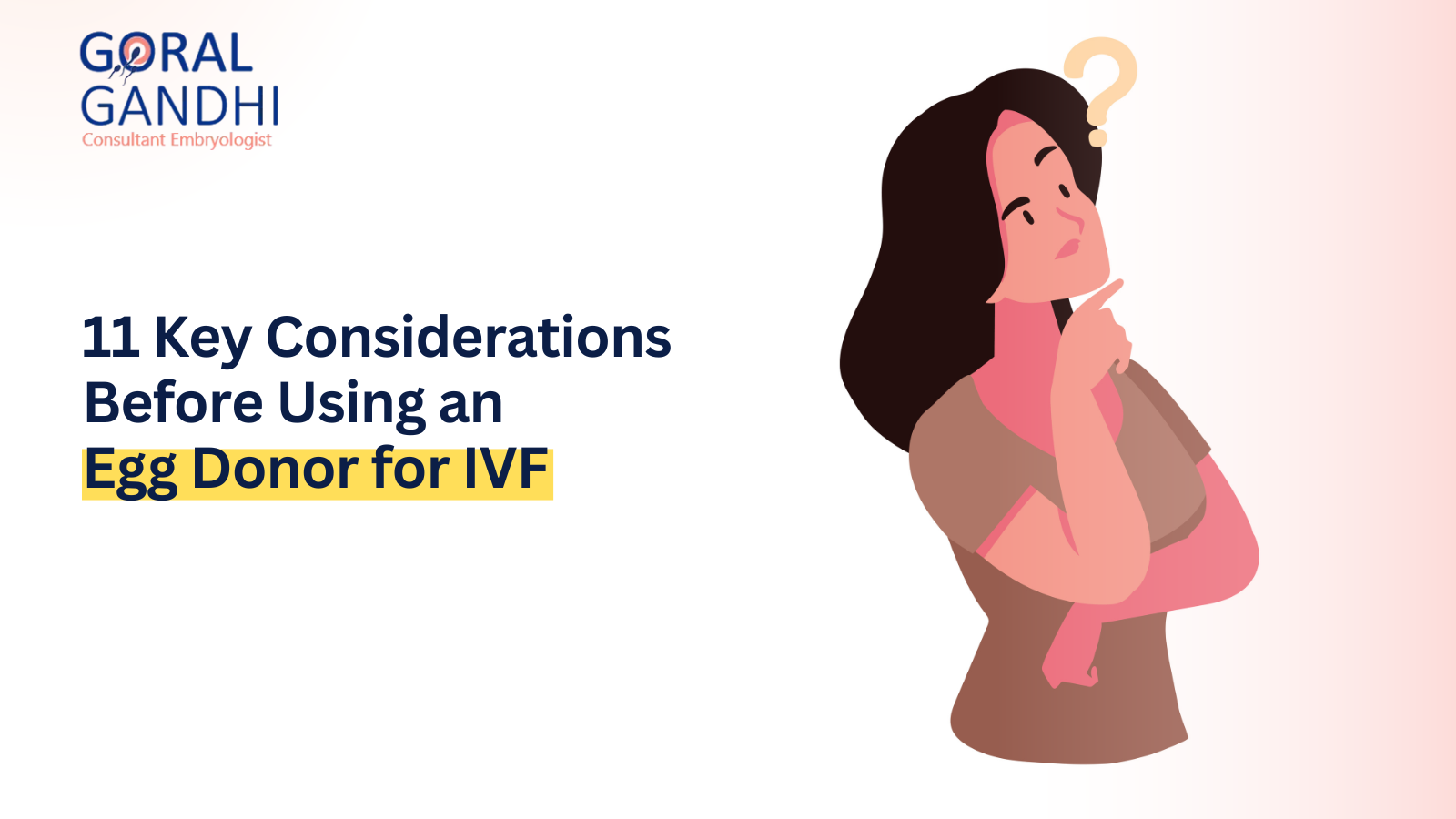Egg donation presents a promising solution for couples encountering infertility, whether due to diminished egg quality or the absence of viable eggs. It enables intended parents to realise their dreams of starting a family by utilising healthy donor eggs. In the realm of assisted reproduction, egg donation plays a pivotal role, particularly when traditional conception methods prove ineffective. Whether you're contemplating IVF treatment or seeking consultations to address concerns regarding egg quality or fertility, familiarising yourself with crucial aspects of egg donation is paramount.
Who Needs an Egg Donor?
- Women with diminished ovarian reserve or premature menopause
- Women with genetic conditions that they don't want to pass on
- Women who have undergone procedures affecting their ovaries (e.g., surgery, cancer treatment)
- Couples who have tried other fertility treatments without success
Understanding the Egg Donation Process
Gaining insight into the complexities and nuances of egg donation can provide clarity and empowerment to couples navigating the journey of assisted reproduction. Let us look at the 11 key considerations before using an egg donor for IVF.
- Emotional Impact: Acknowledge the emotional weight of infertility and allow time to process it. Some couples benefit from counselling as they start the complexities of infertility and the decision to pursue egg donation.
- Choosing a Donor: This process demands time and open communication between partners. Factors such as physical attributes, educational background, and medical history should be carefully considered as you search for a donor who resonates with your values and preferences.
- Fresh vs. Frozen Eggs: Frozen eggs offer quicker availability, while fresh eggs may allow more embryos for future cycles. Discuss your preferences and options with your doctor to determine the best approach for your unique situation, considering success rates and potential for future treatments.
- Donor Anonymity: Honour the donor’s preference for anonymity, recognizing the importance of confidentiality and privacy throughout the donation process. Legal agreements are necessary to establish mutual understanding and consent between all parties.
- Screening: Both, the donor and intended parents undergo genetic testing to minimise the risk of passing on diseases, ensuring the health and well-being of any future children conceived through egg donation.
- Cost Considerations: The expenses associated with egg donation can differ based on factors like location and the choice between fresh or frozen eggs. Nevertheless, it's crucial to carefully assess the financial aspects and plan accordingly, recognizing the investment necessary for this assisted reproductive option.
- Treatment Timeline: Frozen egg cycles are generally faster (1-3 months) compared to fresh cycles (3-6 months), offering different advantages and considerations regarding timing and planning for the treatment process.
- Involving Other Agencies: While some clinics offer comprehensive services, depending on your situation, you might need additional agencies. Collaborating with other professionals ensures comprehensive support and access to necessary resources throughout the egg donation journey.
- Success Rates: Egg donation significantly improves IVF success rates due to the use of young, healthy eggs, offering hope and optimism for couples facing fertility challenges.
- Cycle Cancellation: There's a slight chance of a donor's cycle being cancelled due to an unpredictable response to medication, highlighting the importance of flexibility and understanding as you navigate the treatment process.
- Repeat Donors: If you plan for multiple children using egg donation, be prepared to find a new donor for subsequent cycles due to age-related decline in fertility or the donor's reasons. Planning allows for informed decision-making and consideration of future family-building goals.
Takeaway
Embarking on the path of egg donation offers renewed hope for couples facing infertility challenges. It is important that we recognize the emotional difficulty for women grappling with the realisation that their own eggs may not be viable. However, embracing the use of donor eggs opens the door to fulfilling the ultimate dream of expanding their family. By thoughtfully considering the essential factors highlighted earlier and consulting with a reputable fertility specialist, you can confidently initiate this journey toward parenthood. Remember, each progressive step brings you closer to the cherished goal of building your family.
Take the First Step Towards Parenthood with Goral Gandhi!
For trusted treatment and compassionate care, take the first step towards parenthood by contacting Goral Gandhi today. Our dedicated specialists are here to support you through every stage of the journey.



